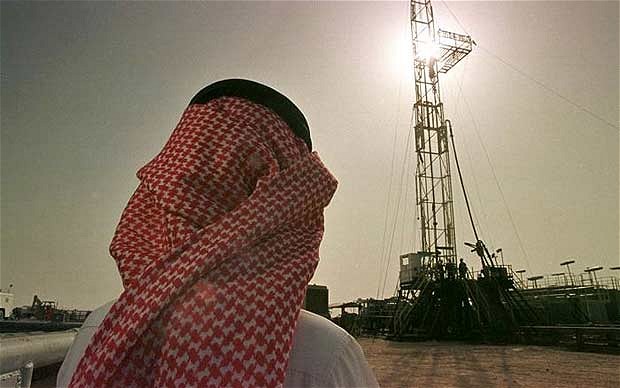Saudi Arabia has secretly increased its oil production to 9.8m barrels per day (bpd), its highest level of output since last October, in a push to win back market share in its oil price war with US shale drillers.
Speaking at a conference in the kingdom, Khalid al-Falih, chief executive of Saudi Aramco - the country's state-run oil company - said: “Supply and demand and the rules of economics will govern. It will take time for the current glut to be removed.”
He added that the kingdom was now pumping 9.8m bpd of oil, around 300,000 barrels more than its output measured by the Organisation of Petroleum Exporting Countries (Opec).
The kingdom has been the main catalyst within the cartel for pursuing a policy of allowing oil prices to fall in order to take back market share from producers outsie Opec such as the US and Russia. In November, largely at Saudi Arabia's insistance, Opec members agreed to leave output unchanged at 30m bpd, triggering a dramatic slump in the price of oil.
Brent crude has fallen 60pc since June and was trading at around $48 per barrel on Tuesday.
Saudi Arabia wields immense power in the global oil industry due to its capacity to pump up to 12.5m bpd if required. Al-Falih's remarks that Saudi was now pumping more oil could signal that the kingdom is seeking to apply even more pressure on its rivals outside Opec.
Falling prices have already hit the oil industry in the North Sea hard. BP has laid off 300 staff already in Aberdeen and informed its 80,000 employees worldwide of a pay freeze throughout 2015. More job losses and project delays are expected across the industry.
However, experts have warned that a sharp cutback in investment could see prices rebound to new highs over the longer term.
Speaking to The Telegraph in London, Abdalla Salem el-Badri, secretary general of Opec, said on Monday: “If we cut production then there will be spare capacity and producers will not invest, or postpone projects. The market will rebound back higher that the $147 we saw in 2008.”



























Laissez un commentaire Votre adresse courriel ne sera pas publiée.
Veuillez vous connecter afin de laisser un commentaire.
Aucun commentaire trouvé